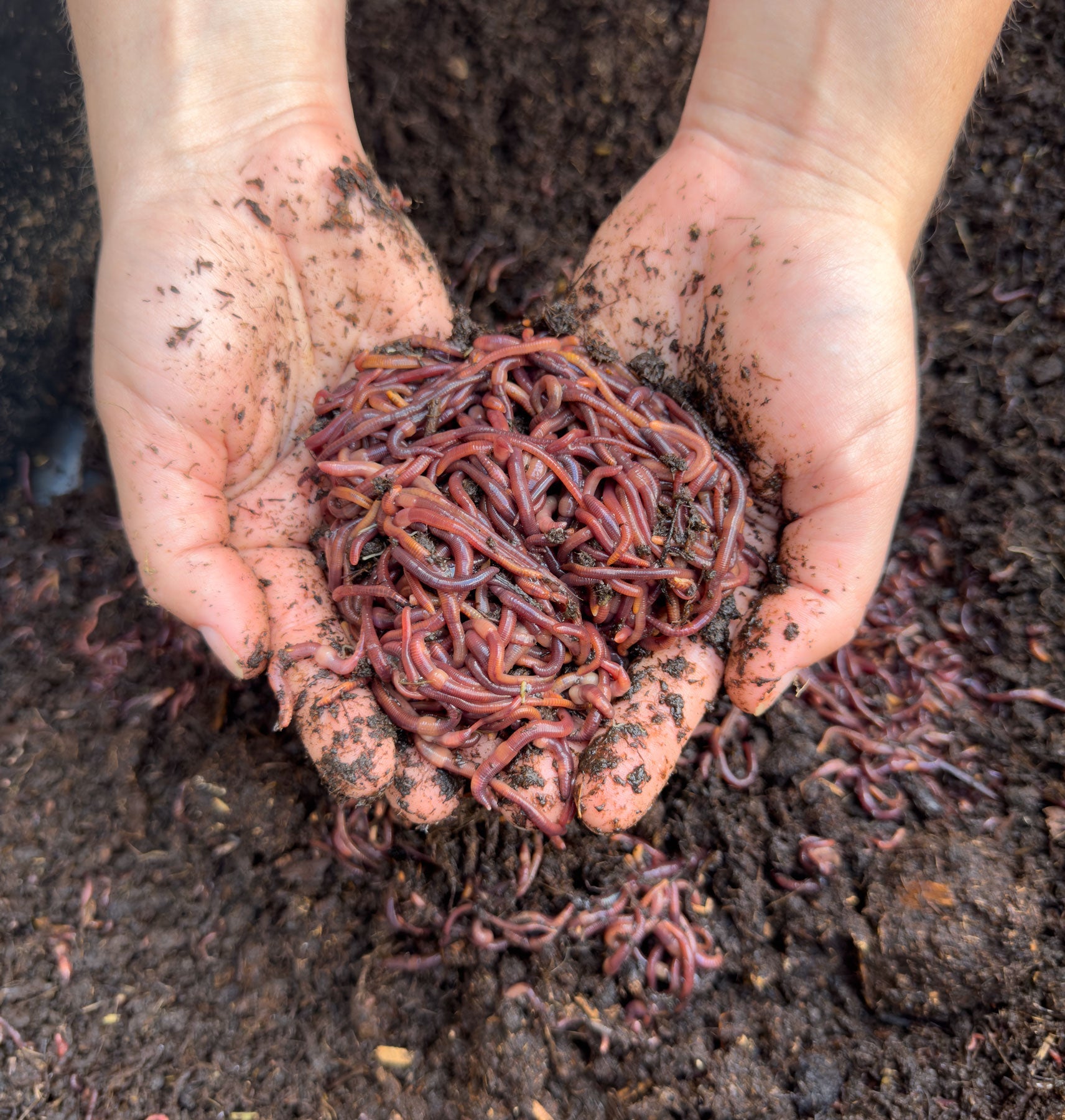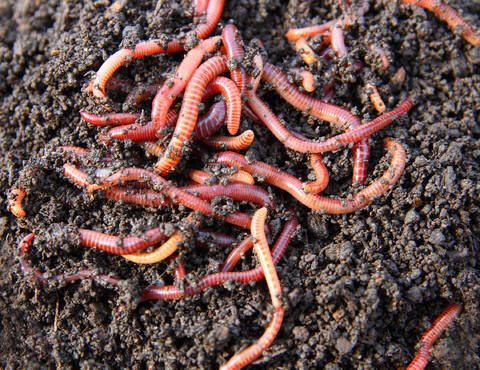Easy-to-raise red wigglers: Enhance your compost
Easy-to-raise red wigglers: Enhance your compost
Blog Article
Why Red Wigglers Are Essential for Chemical-free Farming
Red wigglers play a critical function in natural farming, primarily through their one-of-a-kind capacity to break down natural materials and boost dirt wellness. Their task not only enriches the soil with crucial nutrients however likewise promotes a successful ecosystem vital for lasting farming. Moreover, the physical processes they participate in, such as oygenation and dampness retention, contribute substantially to improved plant yields. Nevertheless, the level of their effect on farming techniques and soil biology raises intriguing concerns concerning the future of chemical-free farming. What ramifications might this have for farming methodologies?
Role of Red Wigglers in Soil Health And Wellness

In addition, red wigglers improve dirt structure by creating networks as they tunnel. These channels boost aeration and water infiltration, promoting a much healthier origin setting. Their activity also assists in maintaining optimum dampness degrees, which is critical for healthy plant growth.

Benefits of Worm Spreadings
Worm spreadings, the nutrient-rich excrement produced by red wigglers, serve as an effective change for organic farming. These castings are loaded with necessary nutrients such as nitrogen, phosphorus, and potassium, which are important for plant growth. Unlike synthetic fertilizers, worm castings launch nutrients slowly, providing a stable supply with time and minimizing the risk of nutrient leaching and runoff.
Furthermore, worm castings enhance soil structure and aeration, promoting much healthier root systems. Their high organic matter material improves wetness retention, enabling plants to better endure dry spell problems. Additionally, worm castings contain advantageous microbes that sustain plant health and wellness by suppressing microorganisms and improving vitamins and mineral uptake.
The application of worm spreadings can cause enhanced plant yields and enhanced top quality of fruit and vegetables, making them a vital resource for organic farmers. Their use additionally aligns with sustainable farming methods, adding to dirt fertility without the negative ecological influences related to chemical plant foods. In general, the incorporation of worm castings into agricultural methods promotes a much more resistant and productive community, highlighting the significance of red wigglers in chemical-free farming systems.

Enhancing Nutrient Biking
(red worms)Vitamins and mineral cycling is a crucial process in organic farming, and the integration of red wigglers plays a crucial duty in boosting this cycle. As red wigglers take in decaying organic matter, they eliminate nutrient-rich castings, which are bristling with valuable germs.
Furthermore, red wigglers assist to speed up the mineralization of nutrients, transforming them from inert forms into bioavailable forms that plants can take in. This process is vital for keeping dirt fertility and promoting healthy crop development. The presence of red wigglers likewise motivates a varied dirt ecological community, fostering a balance of nutrients that supports various plant types.
Improving Soil Structure
The improvement of dirt framework is crucial for fostering a healthy agricultural ecological community, and the task of red wigglers substantially adds to this improvement. These earthworms play a crucial function in freshening the dirt and creating a network of channels that facilitate water seepage and root penetration. As they burrow via the dirt, red wigglers damage up compressed layers, enabling better oxygen exchange and promoting microbial activity.
Moreover, the raw material created from their waste, referred to as vermicast, improves dirt gathering. This process creates steady clumps of soil particles, enhancing soil porosity and lowering erosion (red wigglers). The visibility of red wigglers also urges the advancement of useful fungal networks, which are vital for nutrient uptake by plants
Encouraging Sustainable Practices
Integrating red wigglers into natural farming methods not just improves dirt health and wellness but likewise promotes sustainable agricultural methods. These earthworms play an essential function in nutrition cycling, changing organic waste right into beneficial garden compost that improves the soil. By making use of red wigglers, farmers can effectively lower reliance on synthetic plant foods, thus decreasing chemical runoff and its destructive impacts on communities.
In addition, the unification of red wigglers motivates the practice of reusing organic products, such as kitchen area scraps and farm waste. This waste decrease method not only lowers disposal prices but also cultivates a closed-loop system where nutrients are constantly returned to the soil (red wigglers). Such techniques are vital in minimizing climate change, as they improve carbon sequestration and decrease greenhouse gas exhausts
Additionally, red wigglers improve water retention in the soil, which is crucial in times of dry spell. Their burrowing activities develop channels that permit water to permeate much deeper right into the ground, thus advertising efficient water usage. Ultimately, incorporating red wigglers into chemical-free farming not just sustains biodiversity but likewise straightens with the concepts of sustainable farming, offering an all natural method review to food manufacturing.
Final Thought
In verdict, red wigglers play a critical duty in natural farming by significantly improving dirt wellness and fertility. Hence, the combination of red wigglers into agricultural techniques is essential for advertising sustainability and improving overall soil high quality.
Report this page